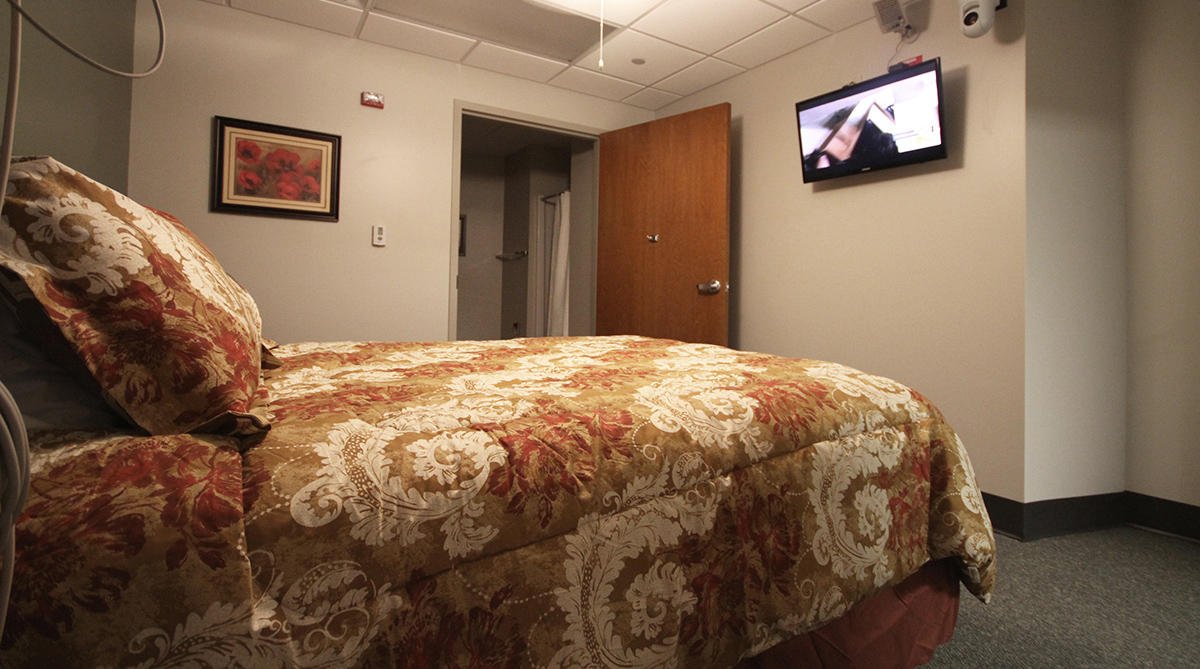
You know the feeling. You wake up sluggish and the rest of the day you feel like you’re walking around in a fog. Our busy lives leave us little time to truly get the rest we need, and if you’re not careful, it can have a negative impact on your health. Getting enough rest involves your mind and body, and making rest a priority is important for your mental and physical health. Usually, when we feel burnt out, we assume it’s because we need more sleep.
Roughly one out of three adults does not get at least seven hours of sleep each night. Insufficient sleep can affect all aspects of your life and raise your risk for serious diseases such as heart disease, diabetes, immune dysfunction and obesity. Sleep deprivation can also lead to deadly accidents and mistakes. Driver sleepiness plays a role in about 100,000 car accidents each year.
It may seem challenging to get the rest you need, but there are simple and effective things you can do that can have a big impact. By incorporating opportunities for rest, you can become more productive, improve your outlook on life, and most importantly, optimize your health. Here are some tips to help you get the rest you need:
- Limit caffeine- While we may enjoy the instant gratification of a caffeine jolt, that cup of coffee, tea, soda or energy drink can increase your stress and anxiety. Especially limit caffeine close to bedtime or you could be up all night!
- Make better food choices- Choosing the right foods gives you energy to make it throughout the day, thus creating a better sleep environment at night. A heavy carb-filled meal may make you extra- sleepy throughout the day. Also, avoid large meals immediately before bed.
- Create a restful environment- Make sure your bedroom is a quiet, dark and relaxing environment. Avoid prolonged use of electronics before bedtime. Participate in a calming activity before bed such as a bath or meditation.
- Stay physically active- Routine physical activity can promote better sleep, just be sure not to be active too close to bedtime-allow yourself time to unwind.
- Develop a sleep routine- Go to bed at the same time every night and try to wake up at the same time everyday.
- Limit alcohol- Even though alcohol might initially make you feel sleepy, it can disrupt sleep later at night and reduce your quality of sleep.
- Take a short break- If you are feeling sluggish during the day, sometimes a short break can help rejuvenate you. Deep breathing, short walks, and stretches can help to refocus your mind and body.
- Manage stress effectively- Stress and worries keeps many of us awake at night. Learn effective ways to cope with your stress such as getting organized, setting priorities, making lists and delegating tasks
Getting enough rest is critical to your overall health. If you often wake up tired or have trouble falling asleep or staying asleep, have a conversation with your healthcare provider to see if you should be evaluated for a sleep disorder. If left untreated, not getting enough rest can lead to serious health problems. Henry County Medical Center’s Sleep Disorders Center is committed to helping patients understand sleep problems, their impact and what can be done about them. Join us for a Lunch to Learn Seminar on sleep set for Friday, April 22 at Henry County Medical Center in Classrooms 2 & 3 at 12 noon. Dr. Jon Tumen, Sleep Medicine Specialist and Charlie Carroll, Director of our Sleep Disorders Center will be giving a seminar on sleep issues, testing and treatment.
The Lunch to Learn will be limited to 30 guests. Call the HCMC Findline at 731-644-3463 for reservations. Visit www.hcmc-tn.org for more information.









